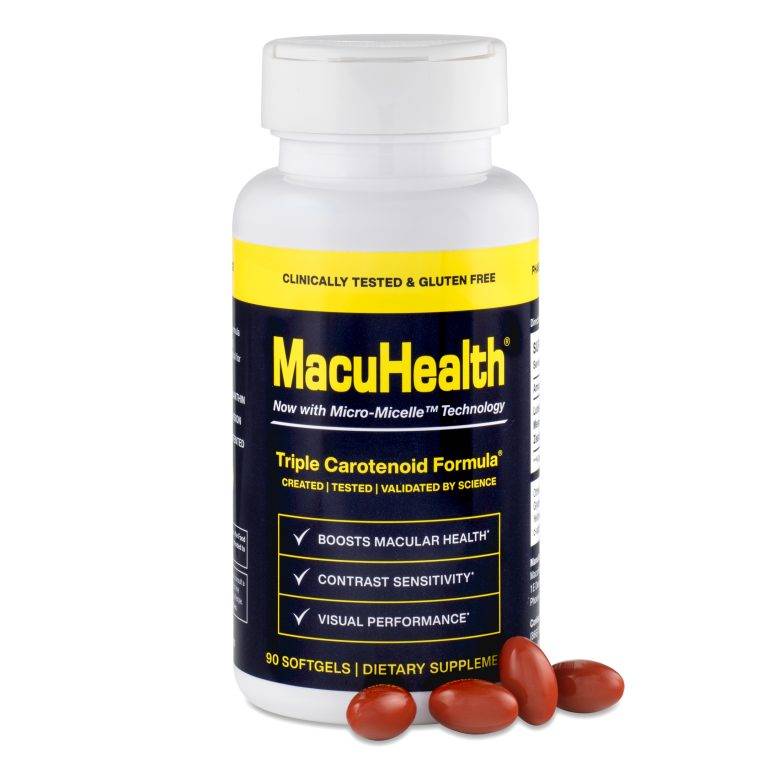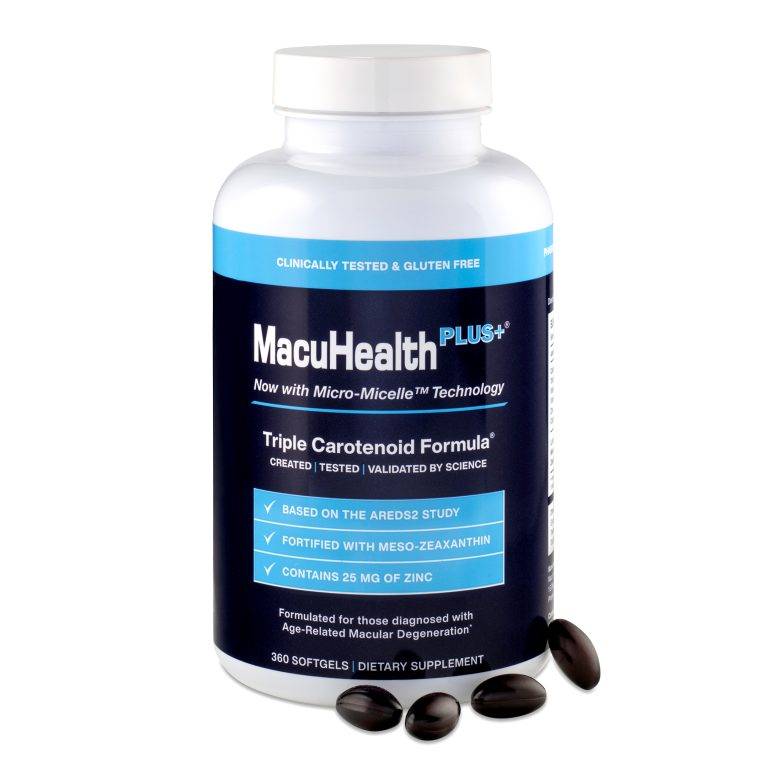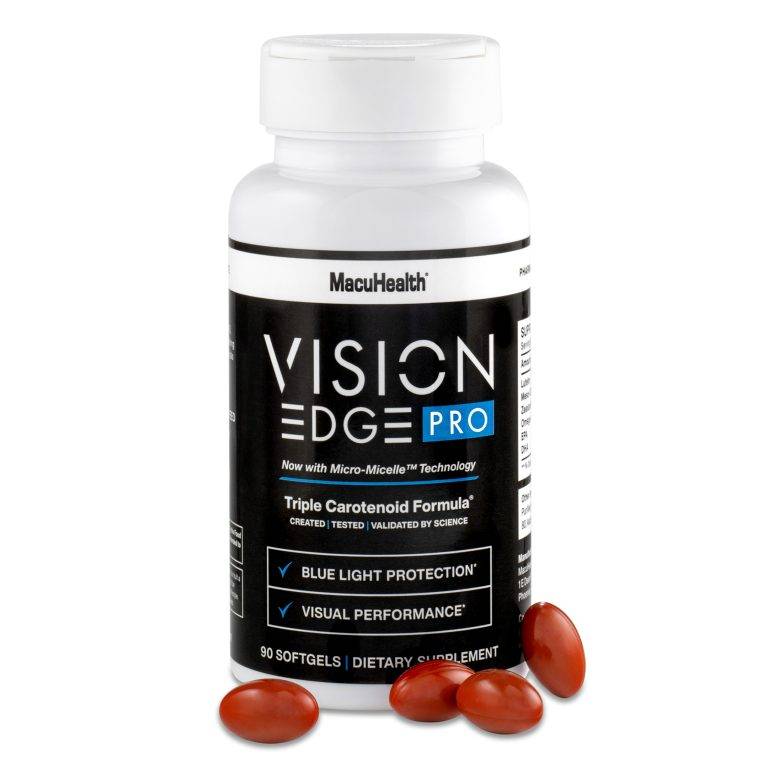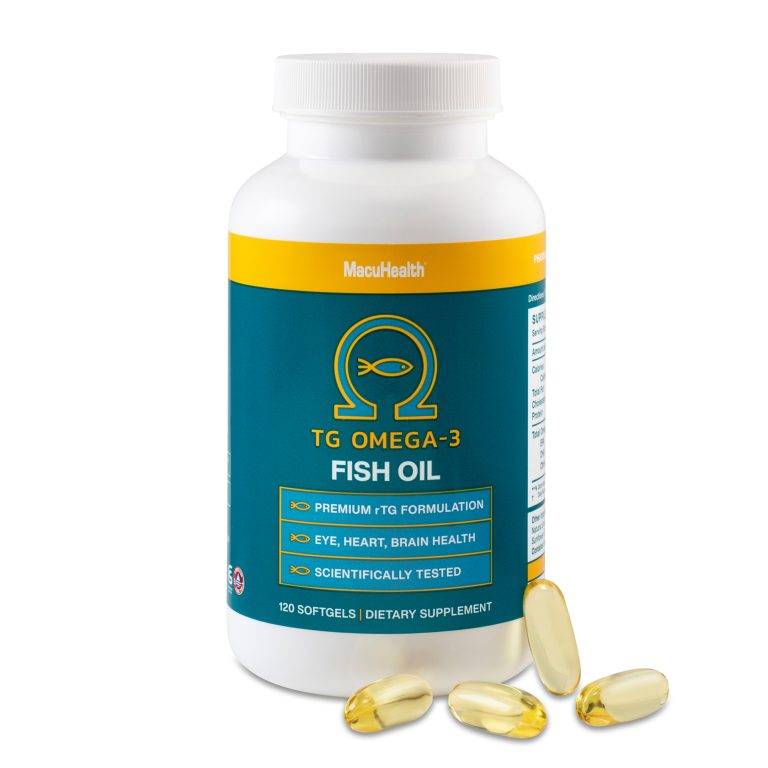SUBSCRIBE AND SAVE! | SIGN ME UP!

Written by MacuHealth
Reviewed by Jim Stringham, Ph.D.
You may not know carotenoids, but chances are you’ve heard of antioxidants. They’re robust components of healthy foods that take on molecules known as free radicals, which damage cells inside the body.
There are over 700 carotenoids found in nature. Most fruits and vegetables contain carotenoids. Also, some leafy greens feature unique carotenoids that fight an intense battle against free radicals inside the retina.
“The retina, especially the macula, is thought to be an environment of high oxidative stress, meaning that there is an abundance of free radicals—molecules that damage proteins and DNA within cells. Antioxidants fight free radicals and are thought to help protect the retina from this damage,” explains Dr. Ivana Kim at Harvard Medical School.
If left unchecked, the damage from oxidative stress can lead to age-related macular degeneration (AMD), the leading cause of vision loss in those over 60. Interestingly, three specific carotenoids deposited in the retina are clinically proven to prevent and manage the symptoms of AMD. We’ll look at how these three carotenoids guard the eyes and can improve eyesight and cognitive health.
As Dr. Kim stated above, the retina needs a lot of oxygen to fuel your eyesight. Near the retina’s center is the macula, which serves central vision. It also contains the largest concentration of photoreceptors in the eye. It’s responsible for bringing detail and color to our sight. Because the macula demands so much oxygen to perform, oxidative stress and inflammation can severely impact eye and brain performance. It can cause a decrease in processing speed, contrast sensitivity and difficulty adjusting to low-light situations.
The body is aware of this, so it places three powerful carotenoids – Lutein, Meso-Zeaxanthin and Zeaxanthin – in the macula. Collectively, these carotenoids are called “macular pigment.” Their robust antioxidant properties make them capable of protecting the macula against free radicals.
Because the macular pigment is colored yellow, it absorbs potentially harmful blue light. This leads to improved visual performance, including sharper colors, better contrast sensitivity and enhanced night vision. Studies show these carotenoids can also potentially delay (or even halt) the progression of AMD.
Lutein, Meso-Zeaxanthin and Zeaxanthin are essential nutrients for the eye and brain. However, our bodies can’t make them on their own. The average person consumes only one to two milligrams of macular carotenoids daily. This is because modern farming conditions have caused the nutritional value of fruits and vegetables to decline.1 Numerous studies show that taking supplements with all three macular carotenoids provides far superior results than taking Lutein and Zeaxanthin. Evidence also points to these nutrients reducing the risk of developing Alzheimer’s disease and slowing its progression.
Studies show that carotenoids accumulate in the parts of the brain that interact with the retina, which can offer improved cognitive function. These nutrients combat oxidative stress that has built up over time. Research shows oxidative stress is the root cause of Alzheimer’s Disease, and carotenoids could be beneficial in managing the condition.
In one study3, the Nutrition Research Centre Ireland and the University Hospital Waterford divided Alzheimer’s patients into two groups. One took a carotenoid formula of 10mg of Lutein, 10mg of Meso-Zeaxanthin and 2mg of Zeaxanthin. The second group received fish oil consisting of 450 mg of DHA and the carotenoid formulation. A third (control) group of patients without Alzheimer’s Disease took only the carotenoid formula.
After a year and a half of supplementation, those who took the carotenoid formulation and the fish oil experienced improved cognitive function. The results are based on a series of independently performed tests, including functional benefits in memory, sight and mood.
Professor John Nolan, Ph.D., who led the study, explains: “Our previous work confirmed that Lutein, Meso-Zeaxanthin and Zeaxanthin are found in the eye and that enrichment of these essential nutrients with nutritional supplements can improve visual function. However, their high concentration in the healthy human brain also suggests a role for these nutrients in cognition.”
Based on overwhelming scientific evidence, it’s clear that we need sufficient amounts of Lutein, Meso-Zeaxanthin, and Zeaxanthin for optimal visual and cognitive health and performance. Thankfully, supplementation can help us reach the levels we need to realize all the benefits.

Formulated by scientists and clinically proven to support eye health for both healthy and diseased eyes.

Based on the AREDS2 formula with 10 mg of Meso-Zeaxanthin and reduced levels of zinc for the ultimate defense against AMD.

Created for those wanting to protect against blue light and improve visual performance for everyday maintenance.

Sourced from small, open-water catch fish from the coast of Chile, TG Omega-3 provides customized dosing for patient specific needs.